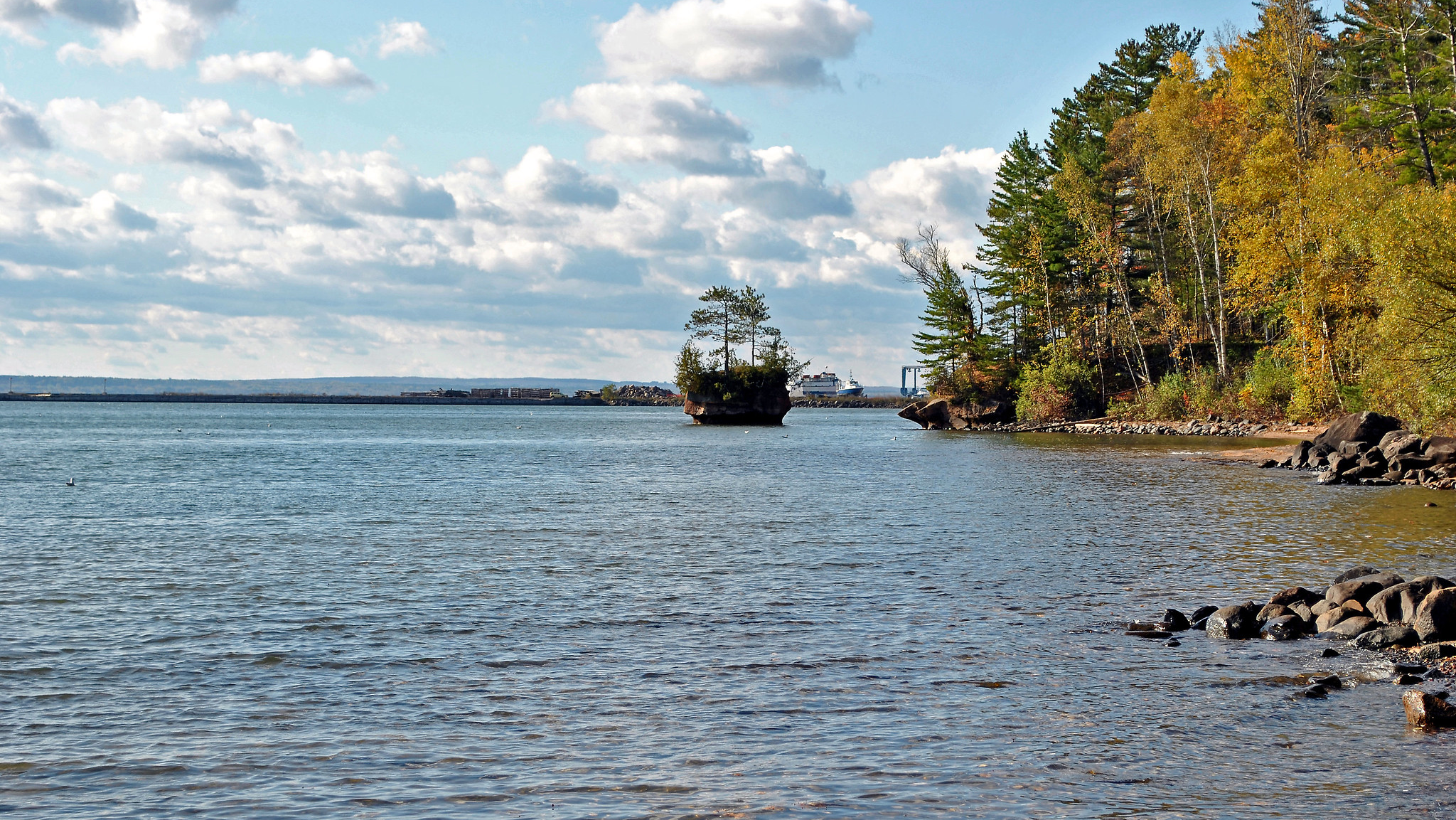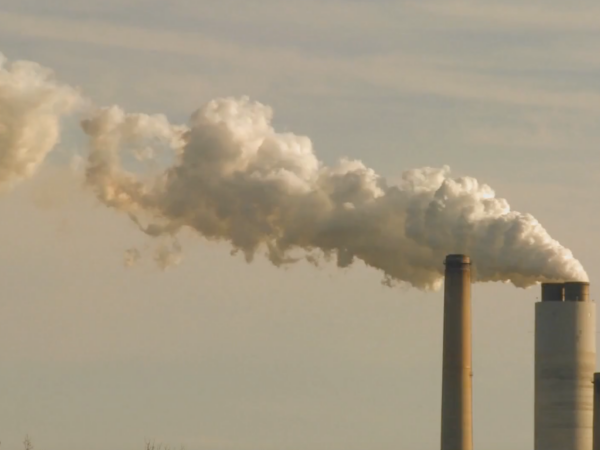
Keep up with energy-related developments in the Great Lakes area with Great Lakes Now’s biweekly headline roundup.
In this edition: Ashland, Wisconsin shoreline littered with toxic pollution from former gas plant in final phases of superfund cleanup, Minnesota orders environmental review of Wisconsin gas plant set to serve customers in both states, Dallas-based Energy Transfer fined $30 million by Pennsylvania for regulation violations but allowed to continue natural gas pipeline construction, six Great Lakes states join U.S. Climate Alliance and Ohio River Valley at a crossroads of petrochemical boom and environmental risks.
- Xcel Energy announces crews have finished construction work for final phase of Ashland, Wisconsin superfund cleanup – Wisconsin Public Radio
Wisconsin’s Chequamegon Bay and its shoreline has been the site of waste cleanup efforts for decades. Xcel Energy, which used to own the defunct gas plant there, has removed and treated 148,000 cubic yards of wood, debris and sediments, and 50 million gallons of groundwater.. Xcel expects to submit a completion report later in 2020 to the EPA and Wisconsin DNR for final review before transferring the site back to the city of Ashland.
The Minnesota Court of Appeals ordered state regulators to go back and submit an environmental review for a gas-fired power plant approved in 2018. The $700 million dollar facility is being jointly developed by Minnesota Power and Dairyland Power Cooperative to serve citizens in both states. Minnesota regulators said they did not assess the environmental impact since the plant is being constructed within Wisconsin’s borders. The court decision requires Minnesota regulators to address the impact of the gas-fired plant on greenhouse gas emissions, water and air pollution and other environmental and health risks over a 40-year timespan.
- Pennsylvania issues one of the largest civil penalties against Energy Transfer company – The Dallas Morning News
Pennsylvania fined Dallas-based Energy Transfer $30 million on Jan. 3 for numerous violations of state regulations while constructing the Revolution natural gas pipeline in western Pennsylvania. The most egregious example of neglect came in 2018, when a landslide along the pipeline’s route triggered a gas explosion destroying a significant amount of private property and forcing a local evacuation. The new settlement between Pennsylvania and Energy Transfer lifts a state moratorium on construction permits imposed last year. Energy Transfer can now resume construction under close scrutiny by the state’s Department of Environmental Protection, though this provides little assurance to local environmental groups who have been burned by the regulatory body’s weak enforcement of holding polluters accountable in the past.
While the United States as a whole is withdrawing from the 2015 Paris Agreement, 25 states are remaining committed to meeting the goals of the global compact to reduce greenhouse gas emissions, under the bipartisan U.S. Climate Alliance. Nearly all the Great Lakes states are part of the alliance, with Illinois, Michigan, Minnesota, New York, Pennsylvania and Wisconsin’s governors committing to the goals.
- The future of the petrochemical industry along the Ohio River: A nexus of macroeconomic trends, environmental impacts and communal changes – The Cincinnati Enquirer
With the coal industry waning drastically year after year, former coal sites have given way to mass shale well pads that have been exploited by the fracking boom. But besides energy, these shale oil wells offer an opportunity for Ohio, Pennsylvania and West Virginia to jump on the petrochemical plastics gravy train, an industry that has historically been located strictly along the Gulf Coast. Encouraging petrochemical projects could rejuvenate the economies of these states that have been some of the hardest hit by the closing down of coal and steel plans. However, it also risks pumping hundreds of tons of toxic organic compounds into the air.
Featured Image: Chequamegon Bay coastline, Washburn, WI, Photo by Aaron Carlson via flickr.com cc 2.0




